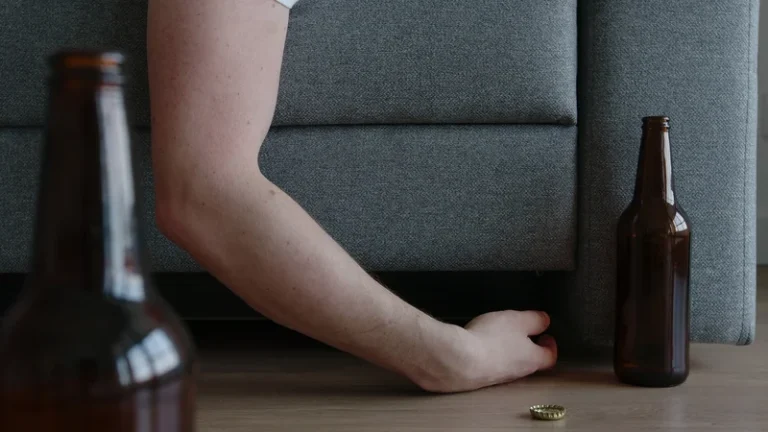
Colcott et al. (2024) reported that reliance on spontaneous reporting of adverse events rather than application of systematic checklists may have resulted in adverse events being underestimated. This overview also identified significant gaps in long-term safety data as the included reviews only provided follow-up data of up to 12 months. Adverse events for cardiovascular events, abuse and misuse potential, and suicidal risk were mainly collected in Phase 3 trials with long-term follow-up data not yet available (Mustafa et al., 2024). These findings align with the recent US FDA meeting to review evidence from Lykos Therapeutics for MDMA registration, which highlighted the lack of data on hepatotoxicity, hyponatremia, drug–drug interactions and abuse-related adverse events (US Food and Drug Administration, 2024). On the other hand, Breeksema et al. (2022) posited that adverse events in psychedelic studies need to be redefined because certain adverse events are ‘challenging but potentially therapeutically beneficial’. For example, categorising ‘anxiety’ as adverse events might prevent participants from revisiting difficult events or thoughts, which might be a necessary therapeutic process.

MDMA-assisted therapy for severe PTSD: a randomized, double-blind, placebo-controlled phase 3 study

This article focuses on the use of psilocybin- and MDMA-assisted therapy (P-AT and MDMA-AT) for the treatment of posttraumatic stress disorder (PTSD) in Veterans. The Phase 3 trials were designed with clear objectives and hypotheses, primarily aiming to assess the efficacy and safety of MDMA-assisted therapy compared to placebo in individuals with severe PTSD. Participant selection criteria were carefully defined to ensure a representative sample of individuals with chronic, treatment-resistant PTSD. This included veterans, first responders, and civilians who had not responded adequately to conventional treatments.

How does MDMA-assisted psychotherapy compare to traditional psychotherapy?

Scientists are studying how MDMA affects the brain and emotions to try to understand exactly how MDMA helps people feel better. If you or a loved one is suffering from substance misuse, call to speak with a caring treatment support person at American Addiction Centers (AAC) to learn about treatment programs. We are available 24/7 to take your call and help you check insurance at AAC facilities, listen to your story, and support you as you begin on a new path. See TripSafe.org’s page on psychedelic therapy for useful info about psychedelic therapy with other substances like psilocybin and LSD. Typically, they wear headphones and blinders, and they go inside — we encourage them to be inside at least 50% of the time. At some point, they’re offered a supplemental dose, which is a dose of MDMA in addition to their initial dose, usually about half of the amount.

Neuropsychopharmacology Reviews: Sleep and neuropsychiatric illness
This allows patients to feel more comfortable and open during therapy sessions, promoting a deeper level of trust and emotional exploration—which may facilitate healing. This state of mind can help individuals process traumatic memories and emotions in a safe and supportive environment. By enhancing the therapeutic experience, MDMA-assisted therapy can lead to long-lasting positive changes and a greater sense of well-being.
- These protocols typically include pre-screening assessments, preparatory sessions, the administration of active doses of MDMA, and subsequent therapy sessions to integrate and process the experience.
- For individuals with PTSD, these effects may create a window of opportunity to process traumatic memories and emotions in a supportive therapeutic environment without being overwhelmed by fear or anxiety.
- In response to the petition’s call for a public meeting, a spokesperson for Lykos sent NPR a statement in April saying the company supports holding an advisory meeting.
- As research continues and regulatory processes unfold, the mental health community and society at large must grapple with the implications of this potential breakthrough.
- This safe mental state creates a never-before-experienced space to process the trauma in a healthy, correct manner.
- This included veterans, first responders, and civilians who had not responded adequately to conventional treatments.
- The fewer in number, but lengthier sessions in the presence of MDMA also redefine concepts regarding the appropriate approach and length of a therapy session involving engagement with traumatic material 5.
Learn more about the effects, dosage, therapeutic approach, and clinical trial findings below. Psychedelics can also decrease amygdala reactivity during emotion processing (49,50), which may reverse the heightened amygdala reactivity typically seen in PTSD (51), thereby increasing the ability to process traumatic memories. Psilocybin also increases emotional empathy (51), mindfulness-related capacities (52,53) acceptance, Halfway house and connectedness while reducing avoidance (54), which may all facilitate PTSD treatment.
- For decades now, following MDMA’s scheduling as a controlled substance and its subsequent illegality, it has been relegated to the streets and recreational use.
- According to federal law, psychedelic drugs are not legal for use in standard clinical care.
- Additionally, 14 of 42 participants in the MDMA group (33%) and 2 of 37 participants in the placebo group (5%) met the criteria for remission after three sessions (Fig. 3).
- For example, categorising ‘anxiety’ as adverse events might prevent participants from revisiting difficult events or thoughts, which might be a necessary therapeutic process.
- After removing duplicates, 108 titles and abstracts were screened, resulting in 24 full texts that were assessed for eligibility for inclusion.
The medication sessions are separated by at least 21 days, and each requires the engagement of 2 therapists. There are three 90-minute preparation sessions prior to the first medicine session and each medicine session is followed by three 90-minute integration sessions during which the patient has an opportunity to process their experience with the therapist(s). In August 2024, MDMA-assisted psychotherapy was denied approval by the FDA, with the request by the FDA to conduct more research on its safety and efficacy. Therefore, MDMA-assisted therapy is not presently available outside of enrolling in a clinical trial. Read updates about the status and timeline of MDMA-assisted therapy on our Blog page. Once approved by the FDA, our practitioners who are trained in MDMA-assisted therapy, will be able to accept new clients.
After removing duplicates, 108 titles and abstracts were screened, resulting in 24 full texts that were assessed for eligibility for inclusion. Fourteen full texts were excluded due to reasons such as wrong intervention, wrong outcome, no full article or no quality assessment (refer to Supplementary Table S2 for the list of excluded studies). In total, 14 systematic reviews were included in this overview, including 4 systematic reviews identified from grey literature. The degree of overlap in primary studies included in each of the systematic reviews was estimated using the corrected covered area (CCA) method proposed by Pieper et al. (2014). A CCA score of 0–5% denoted a ‘slight overlap’, 6–10% denoted a ‘moderate overlap’, 11–15% denoted a ‘high overlap’ how long does mdma stay in your system and anything exceeding 15% were classified as ‘very high overlap’ (Pieper et al., 2014).
Methodology quality
One novel approach is MDMA-assisted psychotherapy for people diagnosed with treatment-resistant PTSD, where MDMA is used as a catalyst to facilitate trauma processing during psychotherapy. The aim was to review all current research into MDMA-assisted psychotherapy for PTSD. One of their foundational philosophies is that all patients with PTSD should be able to access MDMA therapy. They are attempting https://ecosoberhouse.com/ to establish MDMA as first-in-class treatment and standard of care for PTSD patients.
